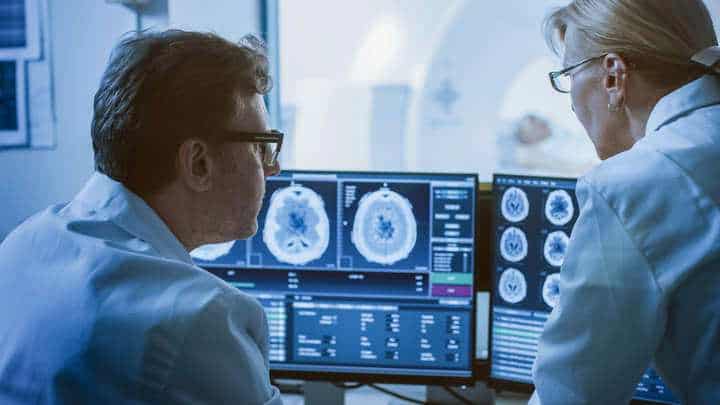Artificial intelligence is making grand changes in the healthcare sector as it now enables medical practitioners to use big data to determine and treat diseases. Thanks to machine learning, doctors can now find medical problems faster, and researchers can have a much faster and more detailed understanding of diseases, especially infectious ones such as Covid-19. There is a great deal of investment in artificial intelligence, and the top 50 startups have been getting $8.5 billion in funding across the last ten years.

Diagnosing illnesses is quite challenging. After all, many thousands of different diseases are currently known. However, the possible symptoms are limited. It takes a lot of time to diagnose, which often means lots of lab testing. Unfortunately, this makes it more likely for errors to occur. However, it is now much easier to get real-time insights with new medical computer vision models. This results in significantly better and faster outcomes in life sciences, radiology, pathology, etc.
Good image annotation is essential for all of these things to happen. Machine learning models require training data that is correct to be effective. The machine learning model is trained according to specific medical images such as MRI and CT scans. These are required to build the diagnostic and treatment solutions correctly. The machine has to learn to find particular features within the data provided for this to happen. This is easier said than done since the human body is quite complex.
For medical image analysis to be functional, it would need training from thousands of medical images that have been annotated with all the targets and objects clearly labeled. So, for example, one particular annotated medical image may show various fractures, tumors, etc., that show an infectious disease is present. Other models may find strange changes by looking at and comparing a set of different medical images that were taken and provided over some time.
Using medical AI to get improved healthcare outcomes
We will now look at four ways medical AI can vastly boost healthcare outcomes.
Reduce the time taken for diagnosis and treatment: The great thing about medical AI is finding issues in visual medical images such as MRI and CT scans. This AI is trained to spot abnormalities, which takes a lot less time to diagnose patients.

The speed at which AI does this is one of the most significant benefits. It can quickly analyze data, whereas humans would take significantly longer.
Lowers the chances of human error: It is a well-known fact that humans are imperfect and can easily make mistakes. Thankfully, this can be addressed by using automated routine workflows.
When a medical AI has the correct data sets, it can drastically reduce the chances of human error, which can easily cause deaths. An AI that has been well trained can easily identify things that most people wouldn’t be able to. This allows people to make better decisions, leading to more favorable outcomes.
Offers precise healthcare: With medical AI, there would be better and more personal insights that can even help to prevent illnesses. A good medical AI can use the correct data to make the right decisions in real-time and even develop predictive models that quickly spot issues long before a doctor can. Essentially, it allows doctors to make even better decisions according to each unique patient.
Expedited medical research: Artificial intelligence is also used to analyze and test lots of patterns within large datasets when it comes to research. It can easily look through medical literature and images and then use the information it already has to find good opportunities to make better drugs in the future.
This gives us a huge opportunity, especially when creating new drugs costs about $1.3 billion. It also takes many years before new drugs can be provided to people since many years are spent doing clinical trials. However, this time can be significantly reduced with medical AI since the trial data can be analyzed, making trials a lot faster and substantially more effective.
There are now many more innovative AI-based startups, and these will continue to grow with even more investments. This will certainly lead to a healthcare revolution. With that said, humans still have a significant role to play since AI can’t replace doctors and other medical practitioners. AI works quite well to add to our capabilities due to its fast and accurate insights. However, this is only made possible due to excellent quality image annotation.

